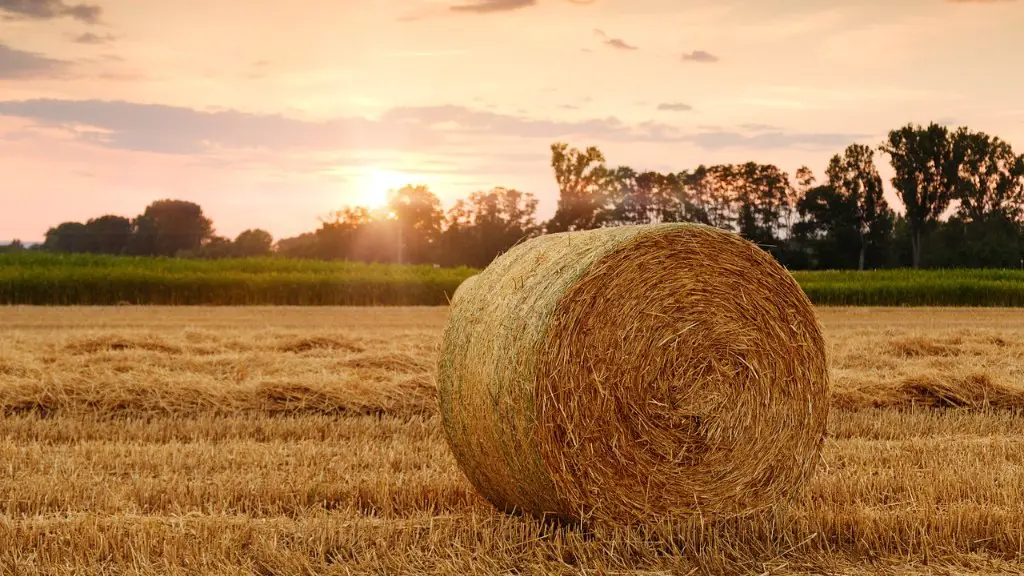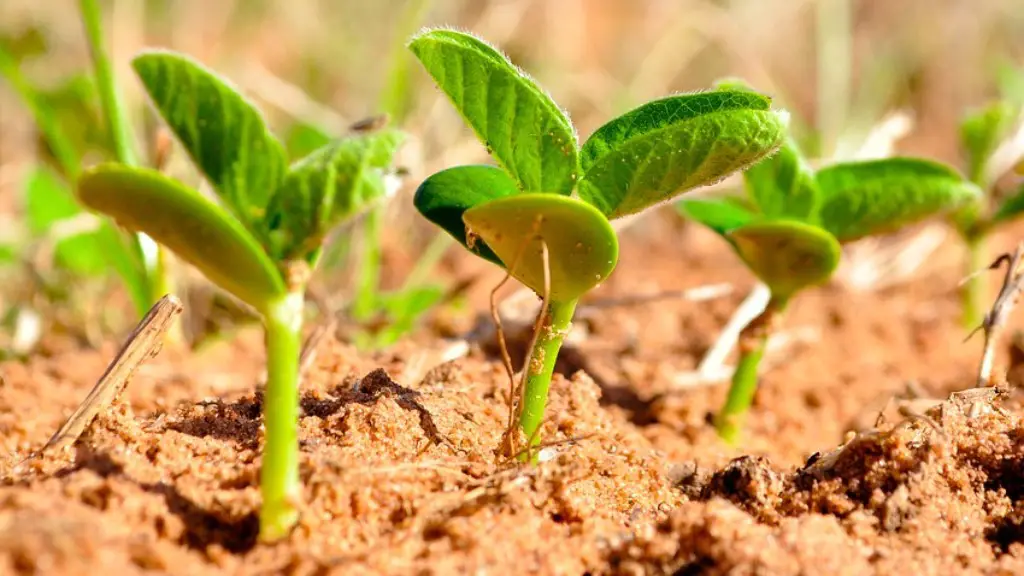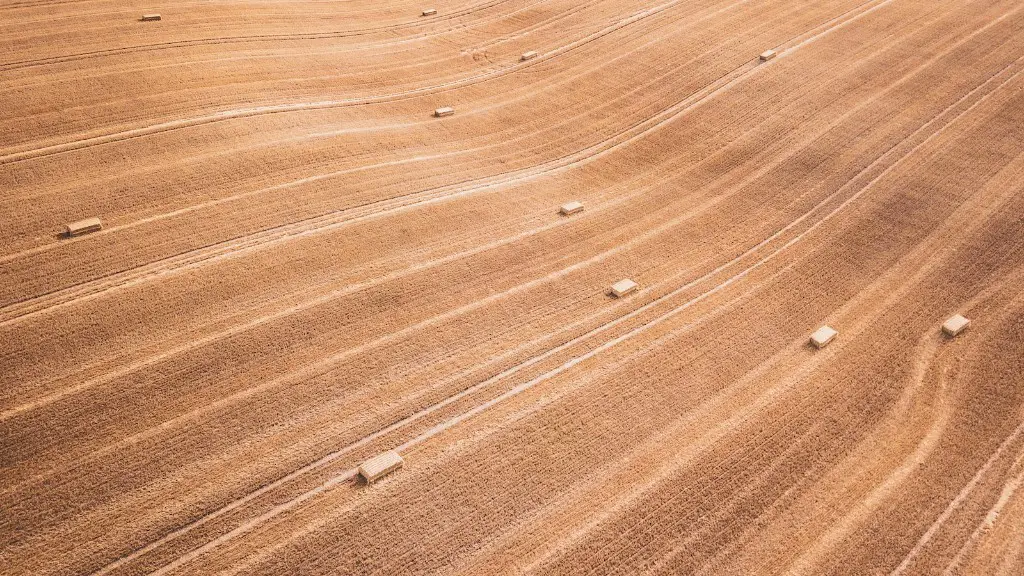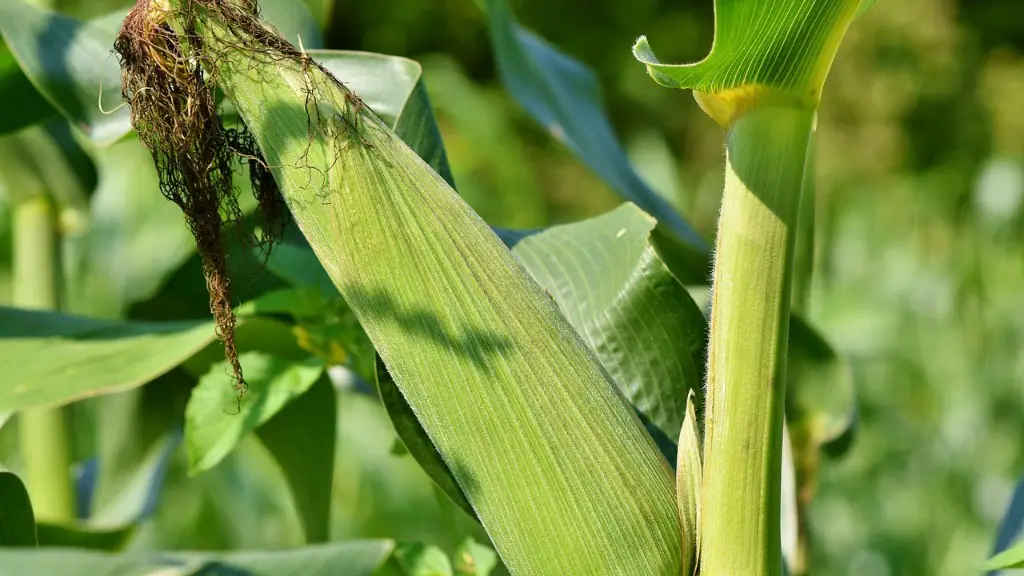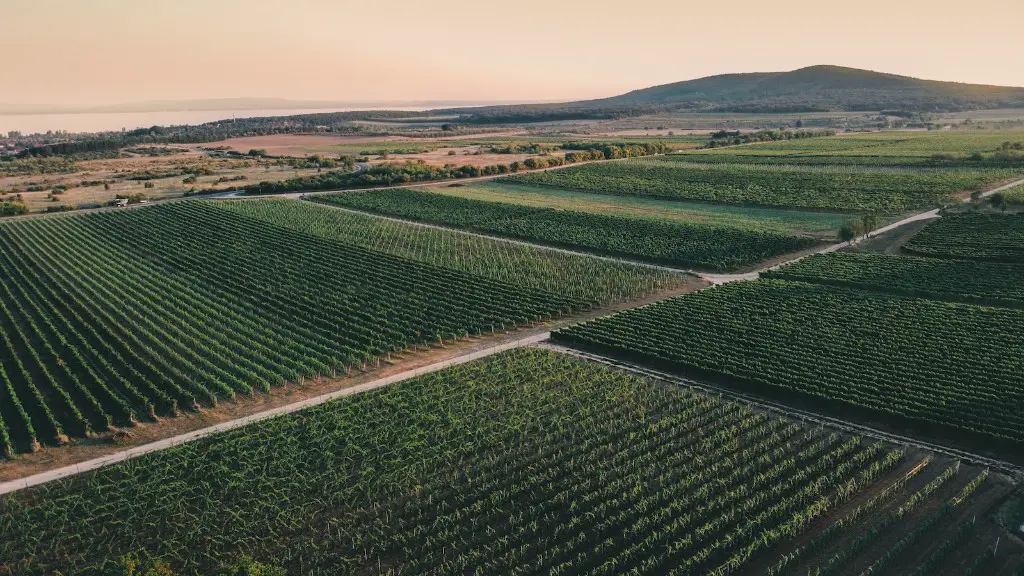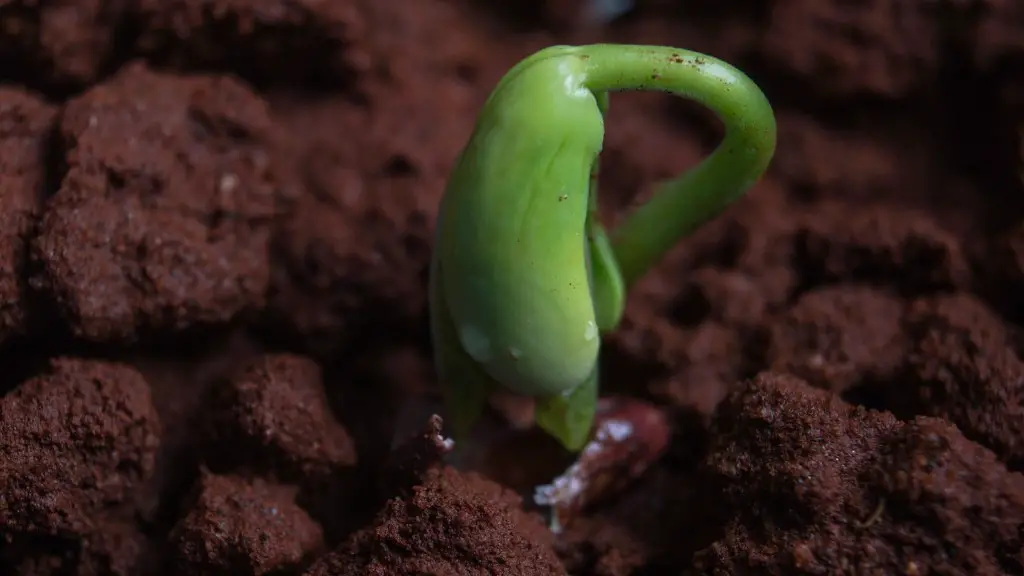Sustainable agriculture is the practice of growing food in a way that is environmentally responsible and that can be continued indefinitely. The need for sustainable agriculture arises from the fact that traditional farming practices are often not sustainable in the long term, and can lead to environmental degradation. For example, some traditional methods of farming involve using large amounts of chemical fertilizers and pesticides, which can pollute the soil and water. Other traditional practices, such as clear-cutting forests to create farmland, can lead to soil erosion and the loss of biodiversity. Sustainable agriculture seeks to address these problems by using environmentally friendly practices that are also economically viable.
There are many reasons why we need sustainable agriculture. For one, sustainable agriculture is necessary in order to maintain the health of our planet. It also helps to ensure that we can provide enough food for everyone on the planet now and in the future. Additionally, sustainable agriculture supports the livelihoods of farmers and other agricultural workers. Finally, sustainable agriculture practices can help to mitigate and adapt to climate change.
What are 5 benefits of sustainable farming?
Sustainable agriculture has many benefits that make it a great choice for farmers and consumers alike. One of the biggest benefits is that it reduces costs. Sustainable agriculture practices can help farmers reduce their input costs while still maintaining high yields. This is because sustainable agriculture practices often focus on using natural resources more efficiently.
Another benefit of sustainable agriculture is that it prevents pollution. Sustainable agriculture practices can help farmers reduce their reliance on synthetic fertilizers and pesticides, which can leach into groundwater and cause environmental damage.
Sustainable agriculture also saves energy. Sustainable agriculture practices can help farmers reduce their fuel consumption by using more efficient irrigation and tillage practices. Additionally, sustainable agriculture often relies on renewable energy sources, such as solar and wind power, which have a lower environmental impact than fossil fuels.
Another benefit of sustainable agriculture is that it prevents soil erosion. Sustainable agriculture practices can help farmers reduce their soil erosion by using cover crops and no-tillage methods.
Sustainable agriculture is also animal-friendly. Sustainable agriculture practices often focus on providing animals with more natural living conditions, which can improve their welfare.
Finally, sustainable agriculture promotes biodiversity. Sustainable agriculture practices can help farmers create habitat for wildlife, which can improve the local ecosystem.
Sustainable agriculture is a type of agriculture that focuses on three main goals: environmental health, economic profitability, and social equity. A variety of philosophies, policies and practices have contributed to these goals, but a few common themes and principles weave through most definitions of sustainable agriculture. Some of these common themes and principles include the following:
-A focus on the long-term health of the environment, rather than short-term gain.
-A recognition of the interconnectedness of social, economic, and environmental systems.
-An understanding that traditional farming knowledge and indigenous knowledge can be important sources of information for developing sustainable agricultural practices.
-A commitment to using renewable resources and conserving non-renewable resources.
-A focus on diversity, both in the types of crops grown and in the types of animals raised.
-A focus on developing local and regional food systems.
-A commitment to fair labor practices and social justice.
What are 3 reasons why agriculture is important
Agriculture is the main source of raw materials for many industries. It is also important to international trade and the economy of many countries. Agriculture also plays a big role in a nation’s development. It can help heal the environment and provide employment.
The agricultural sector plays a critical role in protecting and enhancing the environment and natural resources. Farmers must be able to produce sufficient high-quality and safe food while also protecting the economic viability of their operations and contributing to the well-being of the community. To achieve this, the sector must receive sufficient financial rewards.
What are two advantages of sustainable farming?
There are many benefits to sustainable agriculture, including the prevention of farm pollution, the improvement of soil health, the promotion of biodiversity, the conservation of water, and the protection of the environment for future generations.
Sustainability for food and agriculture can be achieved by following these five key principles:
1. Increase productivity, employment and value addition in food systems
2. Protect and enhance natural resources
3. Improve livelihoods and foster inclusive economic growth
4. Enhance the resilience of people, communities and ecosystems
5. Adapt governance to new challenges
What are 5 reasons why agriculture is important?
The main source of raw materials to major industries such as cotton and jute fabric, sugar, tobacco, edible as well as non-edible oils is agriculture. Moreover, many other industries such as processing of fruits as well as vegetables and rice husking get their raw material mainly from agriculture.
Pasture and cropland play an important role in sustaining the earth’s habitable land. When agricultural operations are managed sustainably, they can help preserve and restore critical habitats, protect watersheds, and improve soil health and water quality.
What is the most important benefit of agriculture
Agriculture is a vital industry that provides raw materials for many other industries. without it, these industries may not be able to survive. This is because agricultural products serve as raw materials for the production of many items. Agriculture is therefore a key sector in the economy and its importance should not be underestimated.
Agriculture is a vital sector of the economy, and its sustainability is essential for our future. Clean, efficient, and renewable energy use is crucial for agriculture to be sustainable. Utilizing renewable energy and energy efficiency practices in agroindustry can help reduce pollution and greenhouse gas emissions, while also saving money. Some examples of renewable energy and energy efficiency in agroindustry systems include solar irrigation, geothermal heating, and drip irrigation.
Why do farmers want sustainable farming goals?
Sustainable farming is a type of agriculture that is practiced with the intention of conserving the natural resources of the land, avoiding pollution and minimising degradation. This type of farming typically uses fewer chemicals, such as fertilisers and pesticides, and instead relies on natural methods to maintain the health of the land. Sustainable farming practices can help to reduce pollution, improve the quality of farm produce, and make agriculture more environmentally sustainable.
The term “triple bottom line” (TBL) is used to describe businesses that take into account the three Ps: people, planet, and profits. The goal of TBL businesses is to create positive social and environmental impact while also being financially successful. While the concept of TBL is not new, it has gained traction in recent years as more and more businesses look for ways to operate in a more sustainable and responsible way.
There are a variety of ways to measure the three Ps. One common approach is to use the UN’s Sustainable Development Goals (SDGs) as a framework. The SDGs are a set of 17 goals that cover a range of social and environmental issues, from poverty and hunger to climate change and gender equality. businesses can use the SDGs to assess their own performance and set goals for improvement.
Another way to measure the three Ps is through the use of impact investing. Impact investing is a form of investing that aims to generate both financial return and social or environmental impact. Impact investors look for investments that have the potential to make a positive impact on society or the environment, as well as generate a financial return.
The triple bottom line is a powerful framework for businesses to use when thinking about sustainability and responsibility.
How does sustainable farming benefit farmers
Sustainable agriculture is a great way to produce food without harming the environment. By avoiding the use of hazardous pesticides and fertilisers, sustainable farmers are able to produce food that is safer for the consumer, farmworkers, and the surrounding communities. This type of agriculture is not only better for the environment, but it is also more efficient and can help to improve the quality of the food that we eat.
There are many promising practices in sustainable agriculture that can help farmers increase yields, improve soil health, and conserve natural resources. Organic farming is one of the most promising practices, as it can help farmers reduce their reliance on synthetic inputs and improve soil health. Agroforestry, or the incorporation of trees into agricultural landscapes, is another promising practice that can help improve soil health and provide other ecosystem services. Natural farming practices, such as crop rotation and intercropping, can also help farmers improve yields and reduce the need for synthetic inputs. Precision farming, or the use of precision agricultural technologies, can also help farmers improve yields and reduce inputs costs. Conservation agriculture, or the adoption of no-till and minimum tillage practices, can help farmers improve soil health and reduce erosion. Cover crops and mulching are other practices that can help farmers conserve water and improve soil health.
What are positive impacts of agriculture?
Agriculture is the backbone of many economies and societies around the world. It provides food for people to eat, raw materials for products, and jobs for people to do. Agriculture also has a significant impact on the environment, through soil erosion, water use, and greenhouse gas emissions.
The implementation of smart farming practices can help farmers to optimize their Water, Topography, Aspect, Vegetation, and Soil resources to create a more sustainable and productive production environment. With a better understanding of these important factors, farmers can make more informed decisions on how to best utilize their resources, both in terms of economic and environmental sustainability.
How does agriculture reduce poverty
The very poorest people primarily benefit from agricultural growth through increased demand for their labour. When there is more agricultural growth, there is a greater demand for workers to help with the harvest, which can lead to increased employment opportunities and higher wages. This, in turn, increases the income that can be accrued from selling labour, providing a much-needed boost to the very poorest people in society.
Agriculture plays an important role in the development of a country’s economy. It not only provides food and raw materials for industries, but can also be a source of capital for industrial development. When there is a surplus in agriculture, it can be converted into funds to purchase industrial equipment or to build infrastructure. This in turn helps to create more jobs and boost the economy.
Final Words
There are many reasons why we need sustainable agriculture. One reason is that it is important to preserve our natural resources. Sustainable agriculture helps us do this by using methods that are environmentally friendly and that do not deplete our resources. Additionally, sustainable agriculture is important for the economy. It helps create jobs and provides farmers with a stable income. Moreover, sustainable agriculture is vital for food security. It ensures that we will have enough food to meet the needs of the growing population. Finally, sustainable agriculture is crucial for the health of the planet. It helps us reduce pollution and protect ecosystems.
There are many reasons why we need sustainable agriculture. First, it is important for the environment. Sustainable agriculture practices can help reduce greenhouse gas emissions, conserve water and soil, and promote biodiversity. Additionally, sustainable agriculture is important for the economy. It can create jobs and help to support local businesses. Finally, sustainable agriculture is important for our health. By eating foods that are grown sustainably, we can reduce our exposure to pesticides and other chemicals, and support our bodies’ natural defenses.
